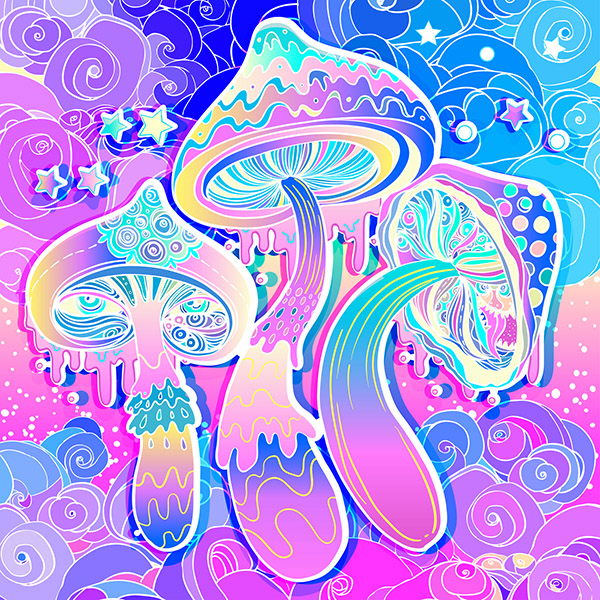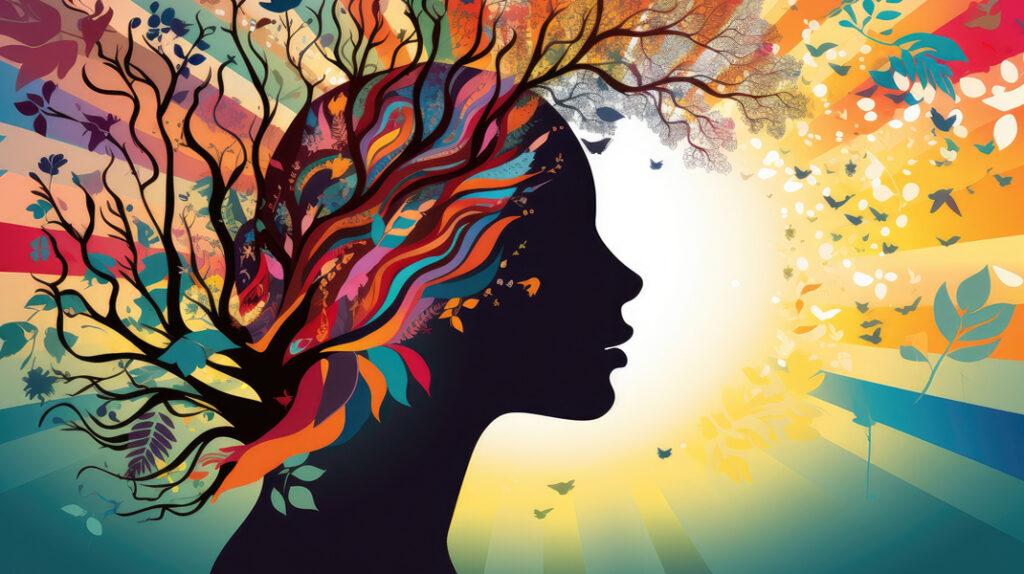Exploring Psychedelics in Mental Health
In recent years, the field of mental health has witnessed a resurgence of interest in psychedelic substances as potential treatments for a variety of conditions. Once relegated to the fringes of medicine due to regulatory restrictions and stigma, psychedelics are now being rigorously studied in clinical settings around the world. From depression to PTSD, anxiety to addiction, researchers are uncovering how these compounds—many of which have been used in indigenous and spiritual contexts for centuries—can play a transformative role in mental wellness.
Key Psychedelics Being Researched
Psilocybin (Magic Mushrooms)
Psilocybin, the active compound in psychedelic mushrooms, has shown promise in treating:
- Major depressive disorder (MDD)
- End-of-life anxiety in terminal illness
- Smoking and alcohol addiction
Johns Hopkins University and Imperial College London are at the forefront of psilocybin research. In controlled settings, a single high-dose session has led to sustained improvements in mood and outlook for some patients.

MDMA (3,4-methylenedioxymethamphetamine)
Originally known as a party drug (Ecstasy), MDMA is being studied for:
Post-Traumatic Stress Disorder (PTSD)
The Multidisciplinary Association for Psychedelic Studies (MAPS) has completed Phase 3 clinical trials showing that MDMA-assisted therapy significantly reduces PTSD symptoms, often after just a few sessions. Although, the FDA did not approve (MAPS) clinical trials in August of 2024 that would have opened the doors to making changes with its current classification, legislation, and prescribing opportunities for those in need of this type of mental health support. There are continued studies across the country currently learning from (MAPS) large study and the FDA’s decision to improve on how MDMA is being studied.

Ketamine
Though not a classical psychedelic, ketamine has rapid-acting antidepressant effects. It is now
FDA-approved as esketamine (Spravato) nasal spray, but also administered as lozenges, troches, IV, or intramuscular for treatment-resistant depression.
Administration of IV or intramuscular is only available by a prescribing medical doctor or psychiatrist in clinics. Lozenges and troches are prescribed by a psychiatrist or MD and the client can administer their own in the presence of a Ketamine Assisted Therapist (KAP) that are available across the U.S. and globally
Ketamine works on glutamate systems rather than serotonin, differentiating it from many other psychedelic compounds.
LSD (Lysergic Acid Diethylamide)
LSD research is being revived for its potential in:
- Anxiety disorders
- Depression
- Cluster headaches
While there has been extensive early research on LSD since its discovery by Swiss chemist Albert Hoffman in 1938 and then his findings of its psychedelic properties in 1943 a plethora of research and testing occurred during the 1940’s-1970’s with 1000 scientific papers on LSD. However, the criminalization and classification as a schedule I drug in late60’s and early 70’s as a result of the counterculture as a result, blocked the research to continue in the US and globally. Currently, interest in LSD is growing and a variety of research studies are ongoing. MindMed is currently beginning its phase III study of LSD and anxiety across the country with 300 participants in 2025. MM-120, MindMed’s lysergide d-tartrate is a pharmacologically optimized form of LSD that received FDA Breakthrough Therapy Designation in March 2024. The company’s Phase 2b results showed promising outcomes: a 65% clinical response rate and a 48% remission rate in GAD patients, sustained over 12 weeks.
Ayahuasca and DMT
Ayahuasca, a traditional Amazonian brew containing DMT, is studied for:
- Addiction recovery
- Trauma healing
- Depression
Research is emerging in South America and increasingly in Western countries. Ayahuasca ceremonies are also being studied from anthropological and psychological perspectives for their deep emotional and spiritual impact.
Psychedelic research is pushing the boundaries of what we know about consciousness, healing, and mental health. While not a panacea, these substances, when used responsibly and with guidance, may offer hope where traditional treatments fall short. As this field grows, staying informed, cautious, and curious is the best way to engage. We are not recommending or suggesting you should do anything illegal. This is information to educate yourself and learn about them.
How to Learn More About Psychedelic Medicine
Educational Resources:
MAPS (Multidisciplinary Association for Psychedelic Studies): https://maps.org
Leading the charge on MDMA and policy reform.
Johns Hopkins Center for Psychedelic and Consciousness Research: https://hopkinspsychedelic.org
Pioneering psilocybin studies for depression and addiction.
Psychedelic Science (by MAPS): Hosts conferences and publishes cutting-edge research.
Imperial College London Psychedelic Research Centre: https://www.imperial.ac.uk/psychedelic-research-centre
Books:
How to Change Your Mind by Michael Pollan – A popular and accessible deep dive into the science and history of psychedelics.
The Psychedelic Explorer’s Guide by James Fadiman – A practical look at psychedelic experiences and their therapeutic potential.
The Body Keeps the Score by Bessel van der Kolk – While not about psychedelics specifically, it’s a powerful context for understanding trauma, which psychedelics may help heal.
Black Psychedelic Revolution: From Trauma to Liberation, How to heal from Racial, Generational, and Systemic Trauma Through Reclaiming Black Psychedelic Culture
The Psylocibin Handbook for Women by Jennifer Chesak, and After the Ceremony Ends (about integration of psychedelics work)
Online Courses and Communities:
Coursera/Udemy Courses on psychedelic-assisted therapy
The Third Wave (thethirdwave.co) – Guides, microdosing resources, and educational content
Psychedelic Society (UK and US chapters) – Events, integration circles, and workshops
Chacruna- chacruna.net their mission is to promote reciprocity in the psychedelic community, and support the protection of sacred plants and cultural traditions. To advance psychedelic justice through curating critical conversations and uplifting the voices of women, queer people, Indigenous peoples, people of color, and the Global South in the field of psychedelic science.
Legal and Access Info:
Clinical Trials: Check clinicaltrials.gov to see ongoing studies.
Ketamine Clinics: Widely available and legal in many areas for treatment-resistant depression.
Decriminalization Movements: Organizations like Decriminalize Nature are working to allow therapeutic and spiritual use of psychedelics at the local level.
Documentaries:
How to Change Your Mind by Michael Pollan, exploring the history and uses of psychedelics, including LSD, psilocybin, MDMA and mescaline – showing on Netflix
Fantastic Fungi, an immersive journey through time and scale into the magical earth beneath our feet, an underground network that can heal and save our planet.
(Un)Well, this docuseries takes a deep dive into the lucrative wellness industry, which touts health and healing. But do the products live up to the promises?

